Dear Readers, Fruits such as bananas, figs, or grapes are often viewed critically because they contain a lot of sugar – at least when ripe. The problem, however, is not the sugar in the fruit, but rather the industrially produced sugar. Studies show that fruits do not cause any health problems, while industrial sugar can lead to obesity, favor metabolic syndrome and increase the risk of high blood pressure, liver damage, and heart disease. Let’s know about the benefits of the banana.
However, if you cannot tolerate the fructose and suffer from fructose intolerance, not only the fructose content is decisive, but also the fructose-glucose ratio of the respective fruit.
If this ratio is particularly balancing or even outweighs the glucose content, as is the case with the banana, for example, then the respective fruit is tolerating much better than fruits with a fructose excess. However, the tolerance of fruits in the case of fructose intolerance is always very individual, so that it is not possible to say in general whether bananas are tolerating this problem or not.
Boosts energy
Bananas are a great snack because they provide carbohydrates in the form of quick-release sugars that your body can use for instant energy. After an intense workout, your body uses these carbohydrates to refuel and repair muscle fibers.
After a workout, the banana diet contains sugar molecules that are able to reach muscle tissue when it is useful most. This helps to restore the glucose reserves quickly.
This is important in giving your body the energy it needs to build muscle and strength. Bananas are useful either before or immediately after a workout, and provide your body with enough banana carbohydrates and nutrients to aid recovery.
Loaded with potassium
Bananas are one of the best sources of potassium in the world. Potassium is another vital nutrient for those who are physically active, but there are also many benefits of potassium that everyone else can enjoy. In bananas, potassium acts as an electrolyte, promotes circulatory health, helps regulate blood flow and hydration in the body, and allows oxygen to reach your cells.
Potassium is useful in preventing high blood pressure and by regulating blood flow, sodium, and water retention in the body, it can lower the risk of heart disease and stroke.
Potassium helps lower blood pressure by counteracting the effects of sodium in the blood so your heart can work efficiently. Fortunately, studies have shown that the best way to optimize the potential potassium benefits is to consume more of it through whole food sources like fruits and vegetables.
Potassium also helps prevent muscle spasms after exercise and helps heal and build muscles more effectively. This makes it an especially important nutrient for anyone who is physically active, as well as those recovering from an injury.
Improves digestive health
Each banana contains around three grams of fiber. The fiber in the banana can help promote evenness to prevent constipation, gas, and other unwanted digestive ailments.
Banana fiber helps maintain normal bowel functions as it binds to waste and toxins in the digestive tract and helps eliminate them from the body.
According to a review conducted by the Department of Internal Medicine and Nutritional Science program at the University of Kentucky, fiber offers a long list of other digestive benefits as well. In fact, it can also be beneficial in treating gastroesophageal reflux disease, colon ulcers, diverticulitis, constipation, and hemorrhoids.
Improves mood
The benefits of the banana contain an amino acid called tryptophan. Tryptophan is used to produce serotonin, one of our main “happiness hormones.” Healthy levels of serotonin work to lift your mood and prevent mood disorders such as anxiety and depression.
Banana foods also contain antioxidants that help release dopamine, another mood-enhancing hormone, in the brain. Consuming bananas regularly can boost your energy levels, prevent fatigue, and maintain healthy levels of these important neurotransmitters to help boost your mood.
Affordable, Convenient, and Healthy Snack
Bananas are low in calories with only about 105 calories per medium-sized banana. Compare to many other processed or high-calorie snacks, bananas are an ideal healthy snack for on the go because they are pre-portion and high in nutrients and fiber. This makes bananas a great choice for anyone watching their caloric intake to help them lose weight.
Additionally, while other fruits like berries can be difficult to clean, prepare, and portion out as a healthy snack, bananas are easy to transport and don’t need refrigeration. Their price is one of the main benefits of bananas.
They are one of the most affordable fruits you can buy, and even the organic banana diet is usually very affordable.
Try keeping them in your desk, gym bag, or even in your car as an emergency snack to stave off hunger when cravings hit.
Combine them with a healthy source of protein or fat like almond butter, Greek yogurt, or oatmeal to maximize health benefits and keep blood sugar levels constant.
Good source of manganese
Adding a serving or two of bananas to your daily diet can increase your manganese consumption. Manganese is important for many functions in the body, including maintaining healthy skin, maintaining skeletal structure, maintaining proper brain function, and reducing free radical damage.
Studies have shown that manganese can help with healthy brain function and can help prevent conditions such as epilepsy and Parkinson’s disease. Some studies also show that supplementation with manganese can increase bone density and even help prevent conditions like osteoporosis.
In addition, manganese also acts as an anti-inflammatory and antioxidant agent, two crucial properties that naturally affect aging as they reduce free radical damage and oxidative stress.
Promotes weight loss
The benefits of the banana are low in calories but high in fiber, an important nutrient that will help you feel fuller for longer help to lose weight. Some studies have even found that a higher intake of high fiber fruits can lead to increase weight loss over time. Because of this, bananas are often recommended as a staple. In a healthy weight loss diet for those looking to shed a few pounds.
Also, because bananas are high in fiber and high in water, they can help keep you from eating other processed foods between meals.
This makes them a guilt-free option for keeping your sweet tooth happy without sacrificing weight loss.
The benefit of the banana improves kidney function
Bananas are loaded with potassium, a micronutrient that plays a central role in almost all areas of health, especially when it comes to kidney function.
Some research suggests that consuming more bananas may help maintain kidney function and may even protect against kidney disease.
For example, showed a notice published in the International Journal of Cancer study, that eating a higher quantity of bananas per month is associated with a lower risk for developing renal cell carcinoma.
Note that many patients with kidney disease advise to reduce their potassium intake by restricting the consumption of fruits such as bananas, as too much potassium can be harmful in some cases.
If you have kidney disease or high potassium levels, consult your doctor or nutritionist before increasing your intake of fruits and vegetables rich in potassium (e.g. bananas).
The benefits of the banana support heart health
Bananas are full of important nutrients that can keep your heart healthy and strong, including potassium and magnesium. Potassium, in particular, helps regulate blood pressure to prevent excessive stress on the heart muscle.
A higher potassium intake is not only associated with a lower risk of stroke but may also contribute, to reducing the risk of coronary heart disease and heart attack.
Bananas also contain a hearty dose of magnesium, with around 8 percent of the recommended daily value in each serving. Magnesium involves in over 300 enzymatic reactions and is also essential for heart health.
In fact, magnesium deficiency can correlate with serious chronic conditions like high blood pressure, diabetes, and high cholesterol and triglycerides.
Benefits of the banana nutritional information
How many calories does a banana contain, how many carbohydrates are in a banana, and are bananas healthy?
Take a look at the nutritional values of medium-size bananas. It’s easy to see why this super fruit is so nutritious.
Not only are bananas good for you. They also contain many important vitamins and minerals, including vitamin B6, vitamin C, manganese, and potassium.
One medium banana (about 118 grams) contains roughly:
- 105 calories
- 27 grams of carbohydrates
- 3 g protein
- 4 grams of fat
- 1 grams of fiber
- 4 milligrams of vitamin B6 (22 percent DV)
- 3 milligrams of vitamin C (17 percent DV)
- 3 milligrams manganese (16 percent DV)
- 422 milligrams potassium (12 percent DV)
- 9 milligrams of magnesium (8 percent DV)
- 6 micrograms of folic acid (6 percent DV)
- 1 milligrams of riboflavin (5 percent DV)
- 1 milligrams copper (5 percent DV)
- 8 milligrams niacin (4 percent DV)
- 4 milligrams pantothenic acid (4 percent DV)
- 26 milligrams of phosphorus (3 percent DV)
Banana foods also contain small amounts of vitamin A, vitamin E, vitamin K, calcium, iron, zinc, and selenium.
How does one find the best benefits of the banana?
Bananas are a staple food for millions of people living in developing countries in Latin America, Africa, India, and the South Pacific today.
They are an important crop because they grow abundantly all year round and are very inexpensive. Bananas can cook in a variety of ways, depending on the type of cuisine. They are typically made in different varieties as fry, boil, bake, mix, or slice and “chip” before dehydrating.
Banana chips are a great addition to grain-free granola for adding a little more energy after a workout or after the onset of the afternoon.
Note that it is best to cut and dehydrate your bananas yourself whenever possible.
Many store-bought “chips” are also known as Kerala banana chips. They are often fried with hydrogenated oils, negating the potential benefits of the banana diet.
If you choose to go for over-the-counter chips. Check the ingredients for the Kerala banana food when you purchase or try to get them from an organic market. And ask what oil they use or if they are dehydrating.
While eating as much organically grown food as possible is ideal. Bananas are one of the fruits that contain fewer harmful pesticides than other fruits. This is because bananas enclose in a thick shell.
This will prevent many of the harsh chemicals and toxins that spray on plants from absorbing. They also grow tall in trees where they are generally safer from rodents, animals, and certain insects. As a result, they are less sprayed with pesticides and herbicides than many other foods.
Eating ripe or unripe bananas?
Sometimes we look at bananas in the store and think “oh, it’s way too ripe” or “oh dang, this fruit is too green!”. This is a shame because different stages of fruit ripeness in bananas often have different benefits for the body and health.
Unripe benefits of the Banana – Pros & Cons
Advantages: One advantage of green bananas is the high content of resistant starch. For anyone looking to avoid foods high in sugar, green bananas are an option, while yellow bananas are not. Those suffering from type 2 diabetes suffer, so they can eat the unripe fruit, While ripe bananas are not as well tolerating. Unripe bananas also have probiotic bacteria, a friendly bacterium that helps with good intestinal health. Also, green bananas help better absorb nutrients, especially calcium.
Cons: Since the antioxidant levels actually increase as the bananas age, unripe bananas are lower in this category. Green bananas can also cause bloating and gas due to the higher persistent starch content.
Ripe Bananas – Pros & Cons
Pros: Since the resistant starch converts into simple sugar during banana ripening, yellow bananas are easier to digest. The higher glycemic index of ripe bananas shows that they digest quickly. Bananas also have higher levels of antioxidants when they ripen.
Cons: Studies show that there is micronutrient loss when bananas ripen. To reduce the number of vitamins and minerals lost, it is better to store and ripen bananas in the refrigerator. The high sugar content also makes ripe bananas something that type 2 diabetics should avoid.
Conclusion: there are advantages on both sides. You could eat unripe bananas or ripe bananas and take advantage of either one. The only difference is that for type 2 diabetics and anyone trying to avoid too much sugar.
Bananas – What to Watch Out for!
So are bananas bad for you? As mentioned earlier, while there are many health benefits to bananas, they may not make the best choices for everyone.
For example, those who are struggling to keep blood sugar levels in a healthy condition or are trying to lose weight must keep their consumption in moderation in order to maximize the potential health benefits of bananas.
Compared to other fruits like berries, citrus fruits, and kiwi, banana contains much more sugar. Plus, each serving contains less fiber and a higher amount of banana calories and banana carbohydrates. Fiber is critical in slowing the absorption of sugar into the bloodstream in order to keep blood sugar levels stable.
Berries are a good example of a fruit with a healthy sugar-to-fiber ratio. They are relatively low in sugar for fruit but are very high in fiber and beneficial antioxidants.
Because of this, it may be best for those looking to manage weight or blood sugar levels to consume berries. And other forms of high-sugar / fiber fruits like green apples, kiwis, and citrus fruits. These fruits have a lower glycemic index than bananas. Hence, they have a much less dramatic impact on blood sugar levels.
Interestingly, despite the number of banana carbohydrates. Studies show that bananas have a lower glycemic index and more slowly absorbable sugars when underripe.
If you’re struggling to keep your blood sugar stable. Choosing green bananas over fully ripe fruits may be a better option to enjoy the many banana benefits. This is because unripe bananas contain more resistant starches than ripe bananas. Resistant starch breaks down more slowly in the body.
Feeding on Bananas – History and Uses in Traditional Medicine
Bananas are said to have been grown and people eat in parts of Southeast Asia and Papua New Guinea thousands of years ago. Sometime before about 5000 BC Some sources.
Records also show that bananas were grown in Africa and on the nearby island of Madagascar shortly after this period. Bananas were common throughout the Middle East and North Africa, including Egypt and Palestine, in the ninth and tenth centuries. They were even mentioned in some ancient Islamic texts.
When explorers from the Middle East and Europe began to travel to Central and South America. They brought bananas on their travels, which is introducing the fruit to an entirely new population.
Portuguese explorers were the first to bring bananas to newly discover regions and populations in that region. Where they are still widely using bananas today.
Bananas were easily grown in the tropics of South and Central America. So they were quickly getting harvests in large quantities. While their popularity spread to North America.
Historically, almost all parts of the banana plant have been used medicinally. The flowers were useful to treat ulcers and diarrhea, and diabetics were given flowers to help regulate blood sugar. Meanwhile, the sap from the plant should help epilepsy, fever, insect bites, and hemorrhoids.
Many bananas are still growing today in the Caribbean, as well as in Central and South America, including Brazil, Ecuador, and Colombia. However, India, Uganda, and China consider being the three largest exporting nations of bananas.
While original wild bananas contain large seeds, the modern bananas we eat are known as parthenocarpic fruits. This means that their flesh swells and matures without even having to fertilize the seeds.
Today we see much smaller seeds in bananas and a more compact size than the bananas originally consumed.
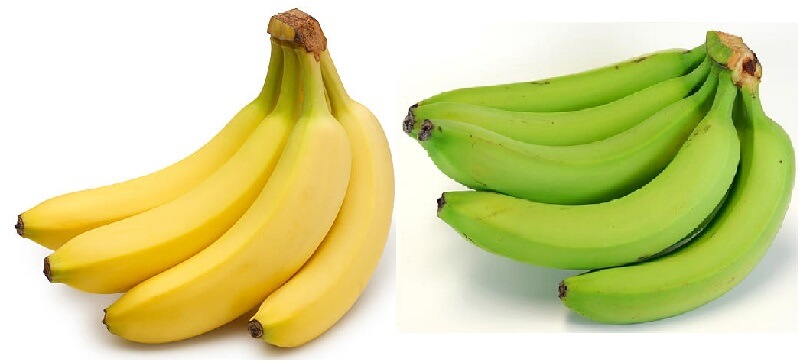
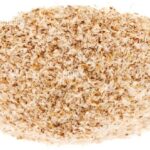

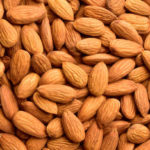
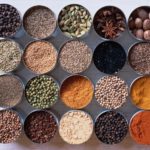
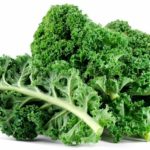

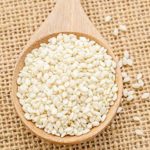





Hey Sazia Kazia,
Aadarsh this side. It is my first time commenting on your blog post and am glad to say that you have shared an excellent content providing several health benefits of Banana. I really like and appreciate the way you have explained and presented your points that are true enough to understand. Your blog works like a knowledge-booster and you are definitely providing good understanding to your readers.
Yes banana has lots of health benefits, as it is loaded with potassium & other vital nutrients that helps reducing blood pressure, improves digestion, boost energy level, reduces the risk of heart disease, improves kidney function and also works well for weight-loss. After reading this complete guide i gain ideas and am sure that this post will definitely help people, readers in understanding the true benefit of banana.
Very informative and keep sharing more similar post.
Thanks,
-Aadarsh